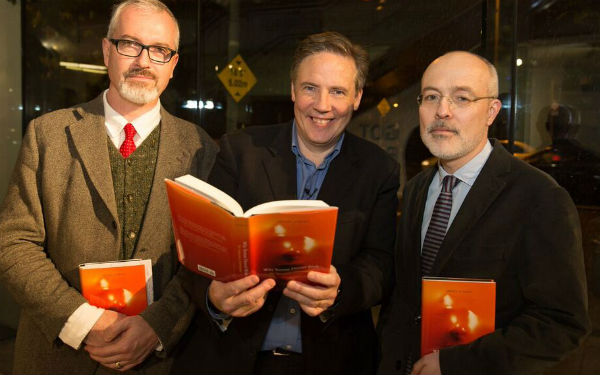‘Why Torture Doesn’t Work: The Neuroscience of Interrogation’
Posted on: 01 December 2015
Torture doesn’t work because the information secured is deeply unreliable for reasons rooted deep in the functioning of our brains, according to a leading Irish neuroscientist who presents a compelling evidence-based case against torture in a new book published by Harvard University Press this month.
There is no scientific basis for the claim that torture works to extract reliable information from detainees, according to Shane O’Mara, Professor of Experimental Brain Research and Director of the Trinity Institute of Neuroscience in his new book, Why Torture Doesn’t Work: The Neuroscience of Interrogation.
Drawing on neuroscience and cognitive, social and clinical psychology, as well as examining the use of torture in Northern Ireland, Iraq, Cambodia, Algeria and by the CIA, the book is a detailed account of the human brain under stress and demonstrates that torture is at best ineffective, usually counterproductive, and always inhumane.
“For ethical reasons, there are no scientific studies of torture. But neuroscientists know a lot about how the brain reacts to fear, extreme temperatures, starvation, thirst, sleep deprivation, and immersion in freezing water, all tools of the torturer’s trade. These stressors create problems for memory, mood, and thinking, and sufferers predictably produce information that is deeply unreliable—and, for intelligence purposes, even counterproductive.”

“In particular, torture works well to extract confessions, but torture is useless for extracting useful, reliable information from memory. Torture may get someone to talk, but there's no evidence that it's the truth. Confession evidence derived from torture is voluminous and nonsensical – consider the numbers of witches that torture proved existed.”
Citing extensive research on the effects of sleep deprivation, pain, drowning, heating, cooling, sensory deprivation he reveals how common torture techniques don’t work the way tortures assume they do. These techniques actually undermine the neurocognitive mechanisms required for recalling accurate information and damage memory, mood and cognition.
For example the prolonged release of stress hormones damages the hippocampus, which is crucial for retrieving memories. Sleep deprivation erodes memory processes and general cognitive function. It also profoundly and negatively affects mood, compromising cognitive function further.

In the book Professor O’Mara points the way to a humane approach to interrogation, founded in the science of brain and behaviour. He draws together the latest research in interrogation to present a new framework for behavioural and brain science-based interrogation, drawing specifically on recent research in clinical psychology, and other relevant domains.
“Ethical and humane interrogations based on fostering respect and modern brain and behavioural science yields usable, verifiable, and actionable intelligence. Interrogation needs to be conducted by highly skilled, well-educated, highly-self-aware interviewers; they need to be able to actively listen to subjects, be genuinely curious about people, and able establish a connection with them. As professional interrogators themselves say, ‘torture is for amateurs’”.
Why Torture Doesn't Work: The Neuroscience of Interrogation by Shane O'Mara Harvard University Press.
Media Coverage:
- HumanRightsFirst.org, January 22, 2016
- ForeignAffairs.com, January 15, 2016
- TheWeek.com, December 16, 2015
- PsychologyToday.Com, December 9, 2015
- TheWeek.com, December 7, 2015
- New Statesman, December 3, 2015
- Newsday, BBC World Service, December 1, 2015
- The Right Hook, Newstalk, December 2, 2015
- Irish Daily Mirror, December 1, 2015
- IrishHealth.com, December 1, 2015
- Irish Times, November 27, 2015
- Times Higher Education, November 26, 2015
- Ryan Tubridy Show, RTE Radio 1, November 23, 2015
- Sean Moncrieff Show, Newstalk, November 12, 2015
- Sunday Times, November 8, 2015
- Nature, November 4, 2015
- Neil Delamere’s Sunday Best, November 15, 2015
- New Scientist, November 11, 2015
